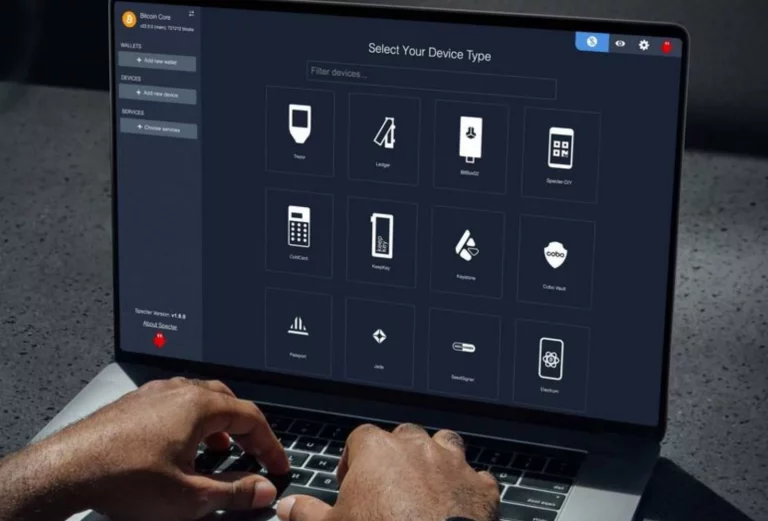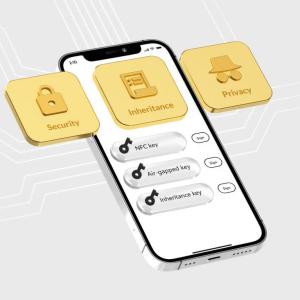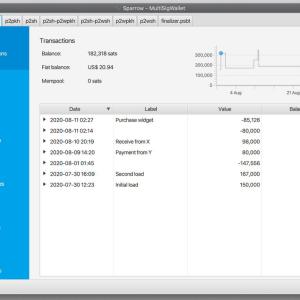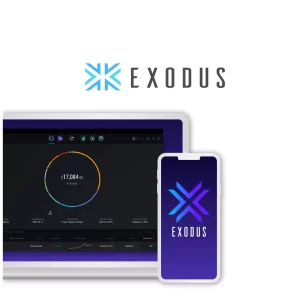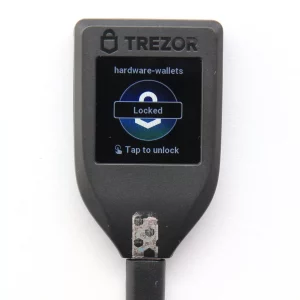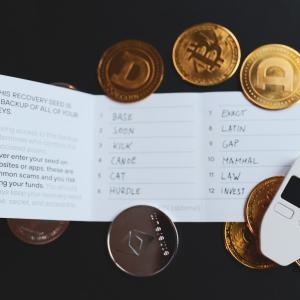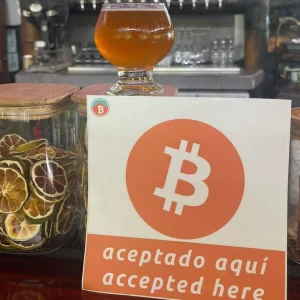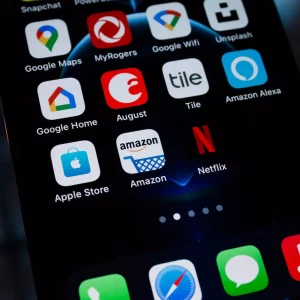The best way to keep your bitcoin safe is to follow the principle of “not your keys, not your coins” (NYKNYC). This means that you should always maintain control over your private keys and keep them secure. To protect your keys from attackers, it’s recommended to use a hardware wallet or cold storage, which keeps your keys offline and away from internet-connected devices.
However, you may also want to use your bitcoin for everyday payments, which often requires using your smartphone, laptop, or desktop computer. In this case, you’ll want to choose an operating system that can securely hold your funds.
Best operating system for bitcoin storage
Let us begin with the most obvious observation: the Windows operating system is not secure. We strongly advise you not keep your coins on any Windows-powered system. Other systems are sufficient for small amounts. We must also distinguish between power users and ordinary users who can barely install a bitcoin wallet.
iOS
iPhones and iPads are running iOS (formerly iPhone OS). iOS is a heavily locked down system, so as long as you don’t directly fear Apple or state actors are not after you, devices running iOS are a fairly good choice for a software wallet. Muun, Phoenix wallet, and BlueWallet are some of the best bitcoin wallet for iPhone.
Dig deeper: Best bitcoin wallet for iPhone.
Android
Android is a bit more open than iOS. Google isn’t monitoring the software in the Play Store as tightly as Apple. And there are many manufacturers like Samsung that add a lot of garbage to your system. If you don’t do too much weird stuff like installing hundreds of applications, it’s still generally safe enough for some sats.
Because the number of Android users outnumbers the number of iPhone and iPad users, many bitcoin wallets are available on Google Play Store. If you have a choice, though, it’s better to go for Google Pixels. There’s less garbage on these and they have additional security hardware.
GrapheneOS
Graphene is the most secure, open source choice for a smartphone (it would be more secure to not use a smartphone at all, though). GrapheneOS can only be installed on Google Pixels, starting from the Pixel 4 and these days there’s even a convenient web installer.
https://twitter.com/Snowden/status/1491160208680558592
CalyxOS
CalyxOS is a free Android mobile operating system that focuses on privacy and security. It supports Google Pixels, Fairphone and eSIM. CalyxOS was designed with frontline human rights defenders, journalists, lawyers, and political and social activist groups in mind.
LineageOS
LineageOS is an open source and a clean Android mod that you can install on a lot more devices than Graphene. Power users can use Unix command-line utilities. Find a list of supported devices here.
DivestOS
DivestOS is an attempt to backport Graphene features onto LineageOS. It is a free operating system, which prioritizes privacy, security, and compatibility with older devices. Here’s a list of DivestOS supported devices
Bitcoin wallets that can be used on Android operating systems without the need for Google Play service include Zeus, Samourai, Simple Bitcoin Wallet and BlueWallet.
Windows
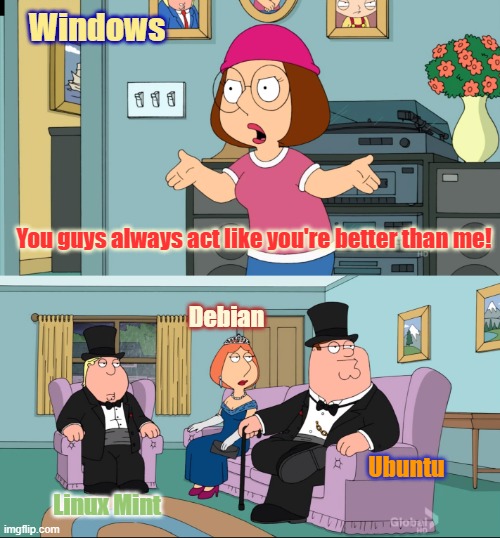
Windows is still okay if you’re using an external signing device like Trezor or Coldcard. Like this, the keys are not directly under threat. If you’re storing a significant amount of satoshis, you have to consider that a potential attacker who gets control over your machine will know the balance of your wallet. And lots of other information about you, most likely your address if you access your email account from this machine.
It’s good to understand that accessing exchanges is exposing you to risk of theft as well. If an attacker has full control over your machine, they will also be able to log in to the exchange and withdraw coins. Two-factor authentication (2FA) can mitigate the risk, but only if it’s from a separate device. If you are using 2FA through your email, this will likely not help you.
Linux
Linux is a great operating system for storing bitcoin if you are a geek. Also, if you are a wannabe geek. Linux is actually GNU/Linux. There are various distributions of GNU/Linux. Here we cover the ones we think are most relevant to Bitcoiners. Bitcoin wallets that are compatible with Linux include Sparrow, Wasabi, Electrum, and Specter.
Debian, Ubuntu, Linux Mint
Debian has been around for longer than last week. Ubuntu is a spin-off of Debian. Purists hate it. It’s also worse for your privacy than Debian, out of the box. And Mint is a spin-off of Ubuntu, some people prefer it.
Linux bitcoin wallet reviews
Tails
Tails is a portable Linux based live USB system designed to protect against surveillance and censorship. You can download it, verify the signatures, put it on a USB stick with the appropriate software. Now you have a USB stick that you can boot your system from. By default, it doesn’t store anything on the device, it does not use the internal hard drives. When you shut down the machine (or pull the stick out of the machine, it’s what Ross Ulbright should have used with a thread around his wrist) the RAM of the machine is wiped and there is no more trace of what happened. You can however create persistent password encrypted storage on the USB stick. Without the password, no one has access to this data.
By default, Tails uses Tor, so if you are going online with it, you are fairly anonymous. Alternatively, you can also decide to not go online when booting. If you are appropriately paranoid, you could even use a separate machine only for the purpose of dealing with bitcoin, and take out the Wi-Fi chip and never let the machine go online. It is possible to use Electrum bitcoin wallet with Tails, as Electrum is conveniently preinstalled on the Tails OS.
Qubes
Qubes is based on Fedora, it’s a “reasonably secure operating system”. You can secure your bitcoin with Qubes OS’s “split bitcoin wallet” functionality by splitting your wallet into an offline “cold storage” wallet and an online “viewing only” wallet. Because of the way Qubes OS works, malware will be unable to access your offline virtual computer devoted to offline cold storage, hence keeping your bitcoin safe. Find out how to set up “split bitcoin wallet” here.
https://twitter.com/Snowden/status/1165607338973130752
macOS
We think the command-line is a great way to interact with technology, but macOS is a good choice if you don’t ever want to deal with the command-line. Make sure you run regular security upgrades.
Bitcoin wallets that are compatible with macOS include Electrum, Wasabi, and Specter.
Best macOS bitcoin wallet reviews
What’s the most secure operating system for holding bitcoin?
Choosing the right operating system for storing your bitcoin is crucial for keeping your digital assets safe. This article has outlined various options catering to different user levels and security needs.
For general users seeking convenience, iOS offers a secure platform for storing moderate amounts of bitcoin with wallets like Muun, Phoenix, or BlueWallet. Similarly, Android users with Google Pixels can achieve decent security, while those on Windows can rely on external signing devices like Trezor or Coldcard for added protection. However, it’s crucial to remember that Windows itself is not inherently secure and should be approached with caution.
Power users seeking advanced features and control have their choice of Linux distributions like Debian, Fedora, or Qubes, which offer flexibility and customization. Alternatively, command-line Android ROMs like LineageOS and DivestOS can provide further control for the technically savvy.
Those prioritizing maximum security have specialized options at their disposal. GrapheneOS, an open-source mobile system exclusive to Google Pixels, offers unparalleled security for smartphones. For a high degree of anonymity, Tails, a live USB system utilizing Tor, provides a clean portable solution for bitcoin management. For those who prefer a more traditional desktop experience, macOS offers a secure alternative if regular security updates are maintained.
No matter which operating system you choose, it is important to always use a dedicated hardware wallet for long-term bitcoin holdings, regularly update your software and applications, implement strong passwords and two-factor authentication, and minimize online exposure by using air-gapped wallets such as Passport and Blockstream Jade. By taking these precautions, you can help keep your bitcoin safe.

